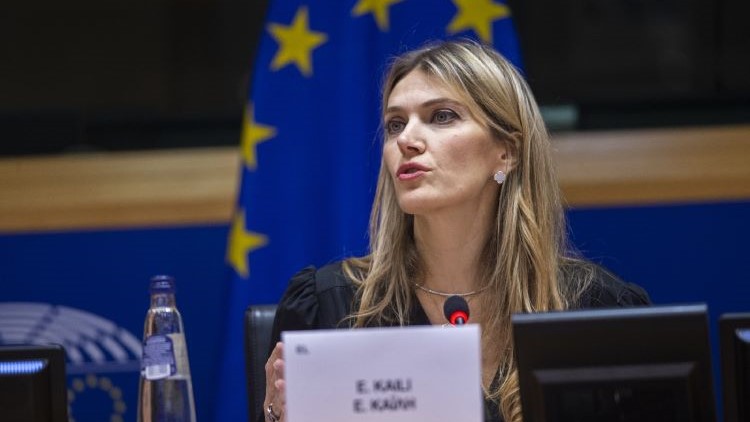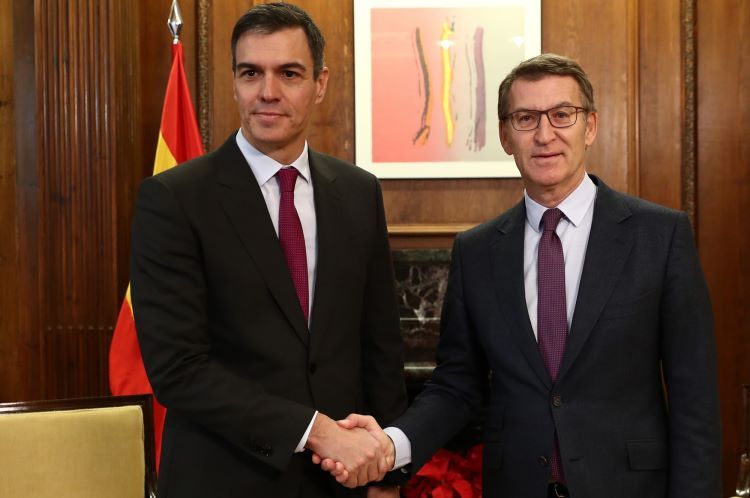A. Sánchez-Aquí Europa
This past year has had several protagonists. This is a summary of what has happened in the EU in 2023.
The impact of Catargate
The beginning of 2023 began with several of those accused of the corruption scandal that affected the European Parliament at the end of 2022 still in jail. Little by little they all came out. Eva Kaili, until then vice president of the European Parliament and member of the Social Democrats, was the last to do so at the end of spring. Since then, Kaili has worked to defend her innocence despite the confessions of the person she has called herself the mastermind of the plot, former MEP Pier Antonio Panzeri. The case is still pending trial, something that is expected to move forward this year.
The nature restoration law
One of the main regulations of the European Green Deal was about to fall in its vote in the European Parliament when, unexpectedly, the Popular Party assured that its approval would affect the work of many farmers within the EU and put security at risk. block food. The PP’s refusal to vote in favor, which is part of the start of the campaign for the European elections in June next year, left the law hanging in the balance, although it was later approved.
The law must launch a process of continuous and sustained recovery of nature across EU land and sea. As an overall objective to be achieved at EU level, Member States will implement restoration measures in at least 20% of the EU’s land areas and 20% of its seas by 2030. By 2050, these measures must be in force for all ecosystems that need to be restored.
The conflict over Ukrainian grain
The war in Ukraine and subsequent measures passed by the EU that removed tariffs on goods from the country to help the economy of the country at war caused problems for several countries bordering Ukraine. The Ukrainian grain that entered their countries, including Poland or Romania, was cheaper than the local grain, which lowered prices for producers within the EU. This caused temporary distortions in the markets of the five Member States sharing a border with Ukraine, leading, on 2 May 2023, to the imposition of temporary restrictive measures on a number of exports of Ukrainian food products.
Finally, on September 15, Brussels forced them to eliminate the measures, which were illegal since they went against the single market, and announced that Ukraine must apply effective measures to control the export of four groups of goods in order to avoid market distortions. in neighboring Member States.
Opening of Ukraine accession negotiations
Since Ukraine asked to join the EU a few days after it was invaded, there has been much progress in this area, especially in 2023. Ukraine began the year with the candidate status that was granted to it in mid-2022. At the special meeting At the European Council in February 2023, EU leaders recognized the considerable efforts that Ukraine has made to meet the objectives underpinning its EU membership candidate status. The leaders also encouraged Ukraine to meet the conditions specified in the Commission’s opinion to move towards its future accession to the EU.
In November 2023, the European Commission issued a recommendation to start accession negotiations with Ukraine. In December 2023, EU leaders decided to start accession negotiations with Ukraine and invited the Council to adopt the negotiating framework once all the conditions requested by the European Commission had been met.
Agreement for a reform of fiscal rules
The end of the year has come with good news for the Spanish presidency of the EU Council, which has managed to close the reform of fiscal rules. The main objective of the reform of the economic governance framework is to ensure sound and sustainable public finances, while promoting sustainable and inclusive growth and job creation in all Member States through reforms and investments.
The Council has agreed on the overall objective of the framework to reduce debt ratios and deficits in a gradual, realistic, sustained and pro-growth manner, while protecting reforms and investment in strategic areas such as digital, green, social or defense. At the same time, the framework will provide adequate scope for countercyclical policies and address macroeconomic imbalances.







